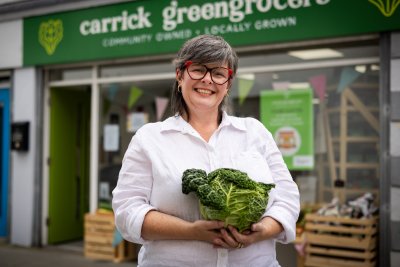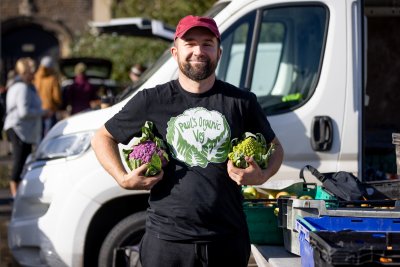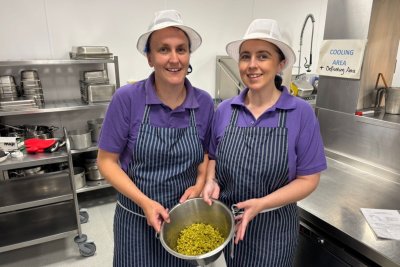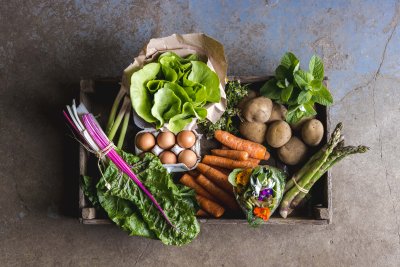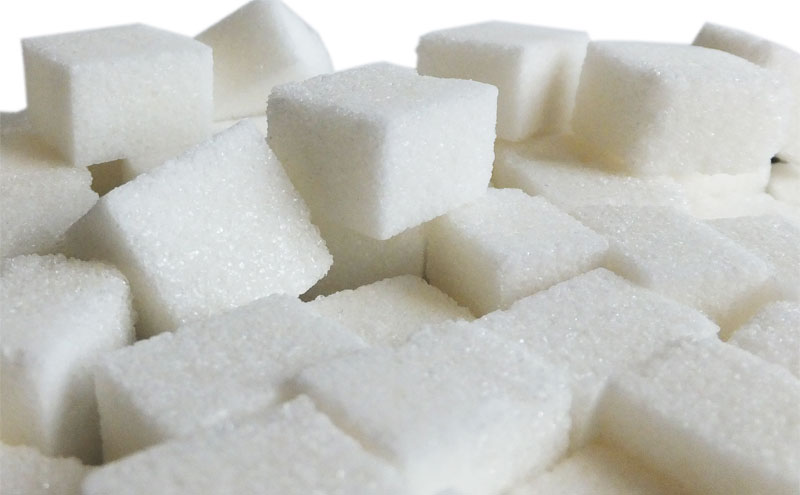

A future US trade deal could fuel obesity and diabetes crisis
Children’s health experts fear a future trade deal with the US could undermine UK efforts to reduce sugar consumption and import American levels of diet-related diseases alongside their produce.
Ahead of this week's trade talks between the UK and the US, today Sustain release analysis showing much higher rates of diet-related illnesses in the US. Sustain have also found evidence of US aggression in trade talks towards countries that try to set their own regulations to reduce sugar consumption, limit junk food advertising or introduce additional food labelling measures.
Kath Dalmeny, CEO of Sustain said: “The US record on trade is clear- they export corn syrup, processed junk food and sugar. And along with it obesity, diabetes and diet-related disease.
“We've been told that Number 10 is preparing to update its obesity strategy. Part of that must be to get us all eating more healthily. But a sugary, junk-filled trade deal will drive a coach and horses through it all.
“We mustn't sell off our children’s health in exchange for a trade deal with the US. Trade deals must put public health first.
“We want to see clear mandates with health priorities set for UK trade negotiators in advance of any talks with the US.”
We have found a study from the Harvard School of Public Health showing spikes in obesity in countries like India and China thanks to trade liberalisation. Other studies show obesity rates rose in both Mexico and Canada after the adoption of the North American Free Trade Agreement (NAFTA) in 1993.
We have found figures that show obesity rates in the US of over 20% versus 12% in the UK. Self-reported rates of being overweight (including obesity) in US teenagers is more than double (31%) that of the UK (14%) and that around 125,000 under 18s in the US are suffering from type 2 diabetes, versus approximately 2000 in the UK. [NB – US population is only five times that of the UK]
Processed foods, sugar and high fructose corn syrup (another form of sugar) are all high on the list of edible goods exported by the US and expected to feature in any future UK/US trade deal.
Last year a report from the US trade department classified the following as ‘barriers to trade’. It is applying pressure, and in some cases threats of costly trade arbitration, to have them removed:
- Additional nutritional labelling such as traffic light labels in the UK and Ireland. The US is arguing that these initiatives must remain voluntary. UK organisations including the Royal College of Paediatrics and Child Health, Diabetes UK, the Local Government Association and the Children’s Food Campaign are all arguing these should be mandatory
- South Africa’s plans to introduce a sugary drinks tax in 2016. The US raised concerns that the tax would effectively discriminate against sugary drinks. The move jeopardises $5m of US sugary beverage exports
- Proposals by six Gulf states to regulate energy drinks, including introducing labelling statements about recommended consumption. (One estimate puts this market at $2bn.)
- Efforts by Chile to clearly label products high in sugar, salt and saturated fat and restrict junk food marketing on packaging to children. The US has referred the Chileans to the WTO saying delays and repackaging has cost the US firms ‘millions of dollars’ in lost sales
- A food act in Peru introducing mandatory front of pack warnings for pre-packaged foods high in sugar, salt and fat and restrictions on junk food advertising to children and young people
- Indonesia’s attempts to introduce nutritional labelling for pre-packaged and fast food along with and regulations to limit advertising and health claims aimed at children
We shared this information with Professor Russell Viner, President of the Royal College of Paediatrics and Child Health, who said: “With the next stage of the Government’s Obesity Plan due to be published this year, we are pressing them to include a range of measures including restrictions on junk food advertising prior to the 9pm watershed, mandatory traffic light labelling including on out of home products and restrictions on fast food outlets near schools.
“We’re concerned by the evidence of US hostility in trade talks towards countries that want to set their own domestic agenda on reducing sugar intake – particularly the push to keep traffic light labelling voluntary. We can’t allow trade talks to undermine efforts to tackle childhood obesity.”
“Children’s health outcomes are much worse in the US than in many other comparable countries– and we don’t want to import those along with the sugar.”
The analysis, shows:
- Obesity rates in 3-17 year olds in the US of over 20% versus 12% in the UK
- Self-reported rates of being overweight (including obesity) in US teenagers is more than double (31%) that of the UK (14%)
- Around 125,000 under 18s in the US are suffering from type 2 diabetes, versus around 2000 in the UK
- One in four adults in the UK is obese versus one in three in the US
- Treating diabetes in the UK costs the NHS around £13.7bn, with Type 2 costing £8.8bn a year. The US spends around $176bn treating diabetes.
- If the UK imported American levels of diabetes, the figure of young people living with Type 2 diabetes could soar to around 25,ooo[i]
Following the adoption of the North American Free Trade Agreement (NAFTA) in 1993 adult obesity rates rose in both Mexico and Canada. In Mexico, this is attributed to investment in processed food, additional advertising and an increase in the consumption of sugary beverages. Market watchers felt the increase in Canada was down to a sharp decline in the price of fructose, a type of sugar.
The NHS spends at least £5.1 billion a year dealing with ill health caused by overweight and obesity in England alone. Researchers estimate the cost to UK society every year runs to the tens of billions, which includes the substantial costs of treating Type 2 diabetes. Cancer Research UK estimates that the predicted rise in obesity related conditions could cost an additional £2.51bn in health and social care costs by 2035.
Ends
The Guardian ran the story on Monday 19 March 2018. Sustain are Campaiging for a Better Food Britain in the wake of the Brexit vote.
[i] Based on US census data 2016. In 2016 the population of the US was 323,127,513, 22.8% of which were under 18. That would mean 73,673,073 were under 18. If 125,000 have type 2, that makes 0.17% of the under 18s. UK population data estimates there are 14.6m under 18s. If 0.17% of them develop Type 2, that’s 25,000 young people.
Good Food Trade Campaign: Campaigning for good trade that benefits people and the planet at home and overseas.
Sustain
The Green House
244-254 Cambridge Heath Road
London E2 9DA
020 3559 6777
sustain@sustainweb.org
Sustain advocates food and agriculture policies and practices that enhance the health and welfare of people and animals, improve the working and living environment, promote equity and enrich society and culture.
© Sustain 2026
Registered charity (no. 1018643)
Data privacy & cookies
Icons by Icons8
